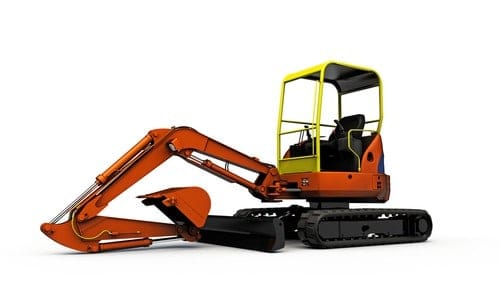
If you’re in the construction industry, purchasing equipment is an ongoing evaluation of choices and costs. There is a vast amount of equipment available, all of which is a potential major asset. While this means plenty of choices for the consumer, it can also mean difficulty choosing appropriate equipment.
We’ve put together a checklist to make your purchasing decisions a bit easier.
Understand the Basics
Start at the beginning. What do you need? What’s your budget? What are your choices?
Let’s look at the absolute basics. There are two categories of must-have construction equipment:
- Essential construction equipment: What are your top priorities? Do you need an excavator, a stump grinder, a trench digger, an onsite power generator, or a mix of these things? Make a short list with your budget in mind.
- Attachments and accessories for your equipment: Will you need a hydraulic hammer, a trailer for travel, a palette fork, or other gear? To decide, stick to the attachments and accessories that are required for your work. Plan your purchasing strictly on a needs basis. If you don’t need something right now, it can wait.
Planning Your Purchases
OK, you’ve got your lists. Now you can assess what’s available on the market and break down your choices into simple but effective options.
For example – let’s assume you want an excavator. This is your checklist for the essentials:
- Suitable for your core work: This is a yes/no answer. Stick to the equipment that delivers the capacity you need. Check performance, product specifications, and all the other critical data to make sure.
- Able to carry all the attachments you need, like hydraulic hammers, etc.: Your attachments and accessories list simplifies your range of choices by eliminating unsuitable equipment. Ensure the attachments are suitable for your choice of machine and check their performance information as a guide.
- New or used? This isn’t entirely a cost issue. Sometimes used equipment is a very good option. If you find a reliable piece of equipment you know is good and can do the job, a used machine is likely to be a good choice. As long as you can get a used machine serviced, it’s a potentially viable option.
- Spare parts: If there’s any doubt at all about spares, forget about the purchase. All machines need spares. You should be able to access authentic parts, too, particularly for good brands.
- Servicing: Like spares, it’s essential that you understand the servicing schedule and the ease of servicing before you purchase. It’s not worth the frustration to buy equipment that might be hard to service. That can be expensive and it will risk significant downtime.
Call Allclass Construction Equipment
We hope you’ve found our checklist useful and informative. If you’re looking for any kind of construction equipment in Brisbane, call us or contact us online. We’ll be happy to find the perfect equipment for your business.